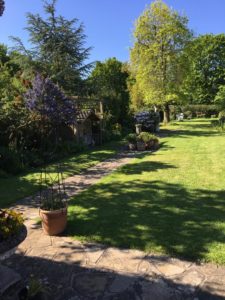Asking questions to yourself mindfully and reflectively, without hurrying, can be a very useful way of resetting your energy, and moving forward with greater clarity and purpose. The article below outlines four that I ask strategically during the year.
 Four mindful questions, four times a year
Four mindful questions, four times a year
These are four questions that I ask myself, and invite you to ask yourself four times a year. I do it at the quarter points of the year, which is to say the Winter and Summer solstices in December and July, and the Equinoxes in March and September.
Two of the questions are backward looking, over the previous 2-3months, and the other two are forward looking, toward the coming 2-3months.
I find that asking these questions to myself mindfully and reflectively, without hurrying, is a very useful way of resetting my energy, and moving forward with greater clarity and purpose. Here they are:
- What is it that I can appreciate and have enjoyed the most about the last few months?
- What are the wounds or burdens that I have been carrying that I am ready to put down or release?
- What am I ready to give birth to and/or manifest in my life right now?
- If I were to pick one, maximum two goals that were my absolute priority to achieve/manifest over the next few months, what would it/they be?
 Introducing Rainstorm Sleepwave – Psychoacoustic soundscape to fall and stay asleep. 20%off until June 22nd!
Introducing Rainstorm Sleepwave – Psychoacoustic soundscape to fall and stay asleep. 20%off until June 22nd!
As most of us are well aware, the quantity and quality of our sleep plays a huge role in our mental, physiological, emotional, and relational well-being.
Rainstorm Sleepwave can be used to:
- fall asleep quickly
- return to sleep after awakening
- sleep more deeply
- take a power nap
- recover more quickly from jet lag
- meditate deeply
Learn More and Listen to the Sample
Upcoming classes and workshops
Ongoing on Wednesday’s, 7.30-8.30pm – Wednesday Meditation for stress transformation and positive energy with Toby (Bukit Timah)
Ongoing on Tuesday evenings, 7.30-8.30pm – Tuesday Meditation for stress transformation and positive energy with Toby (East Coast)
Wednesday 12.30-1.30 – Integral Meditation classes at Space2B on Stanley Street
Saturday mornings 9-10.15am, June 15th, 29th – Qi Gong workout and meditation class
Tuesday/Wednesday 18th&19th June – Summer Solstice balancing and renewing meditation
FOR BEGINNERS: Saturday 15th June, 11-12.30pm – Get your meditation practice started now- The shortest and most time effective meditation workshop ever
Saturday 22nd June, 2-5pm – Going From Over-whelmed to Over-well: Meditation for Quietening the Mind – a three hour workshop
Integral Meditation Asia
Online Courses * 1:1 Coaching * Books * Live Workshops * Corporate Mindfulness Training *Life-Coaching * Meditation Technology



 Unstructured mindfulness – Turning and facing yourself
Unstructured mindfulness – Turning and facing yourself

 Dimensions of mindful perception and understanding
Dimensions of mindful perception and understanding


